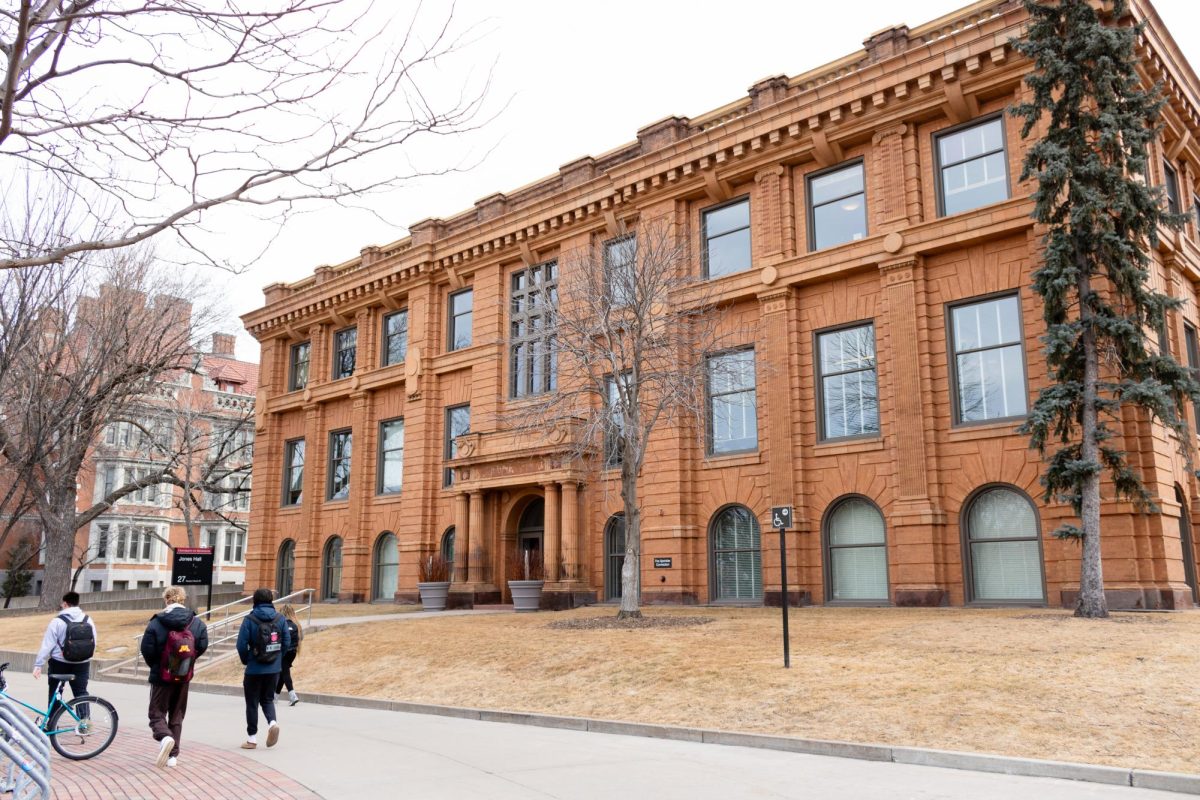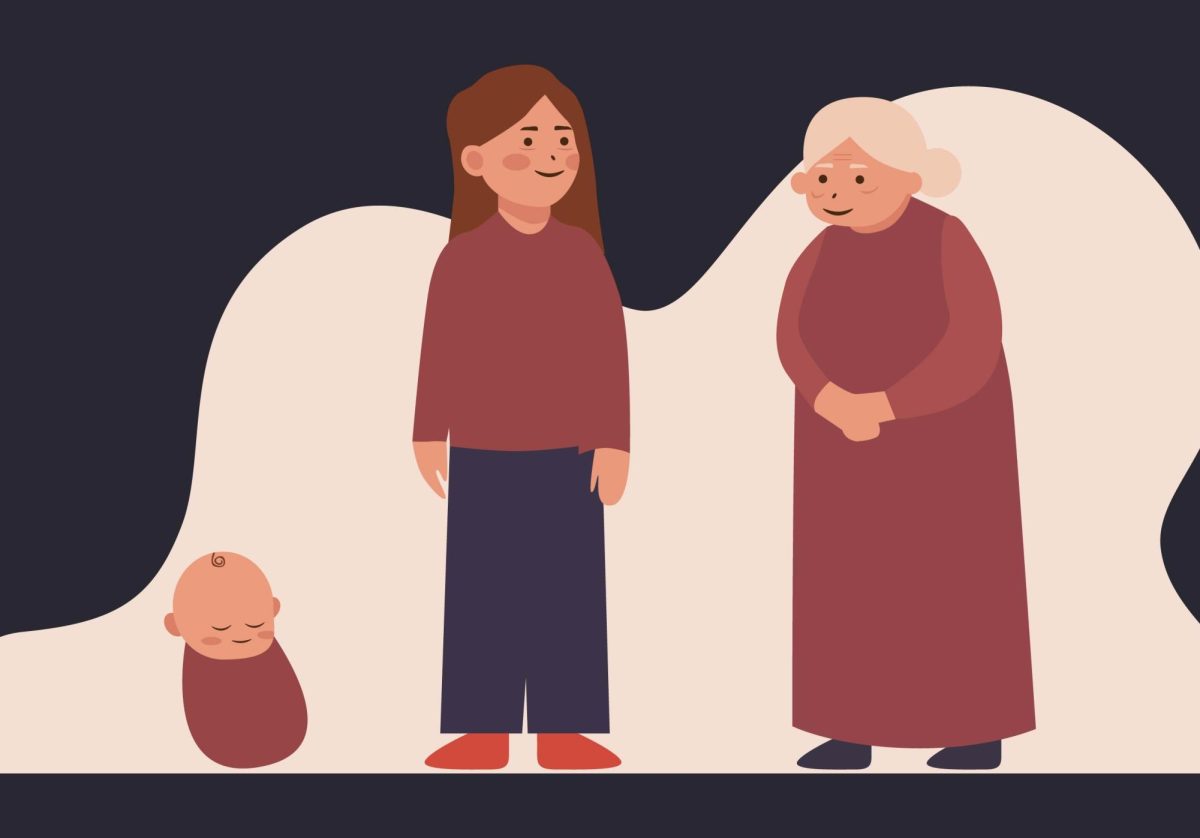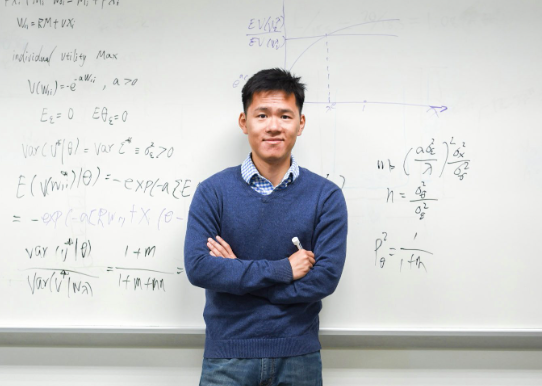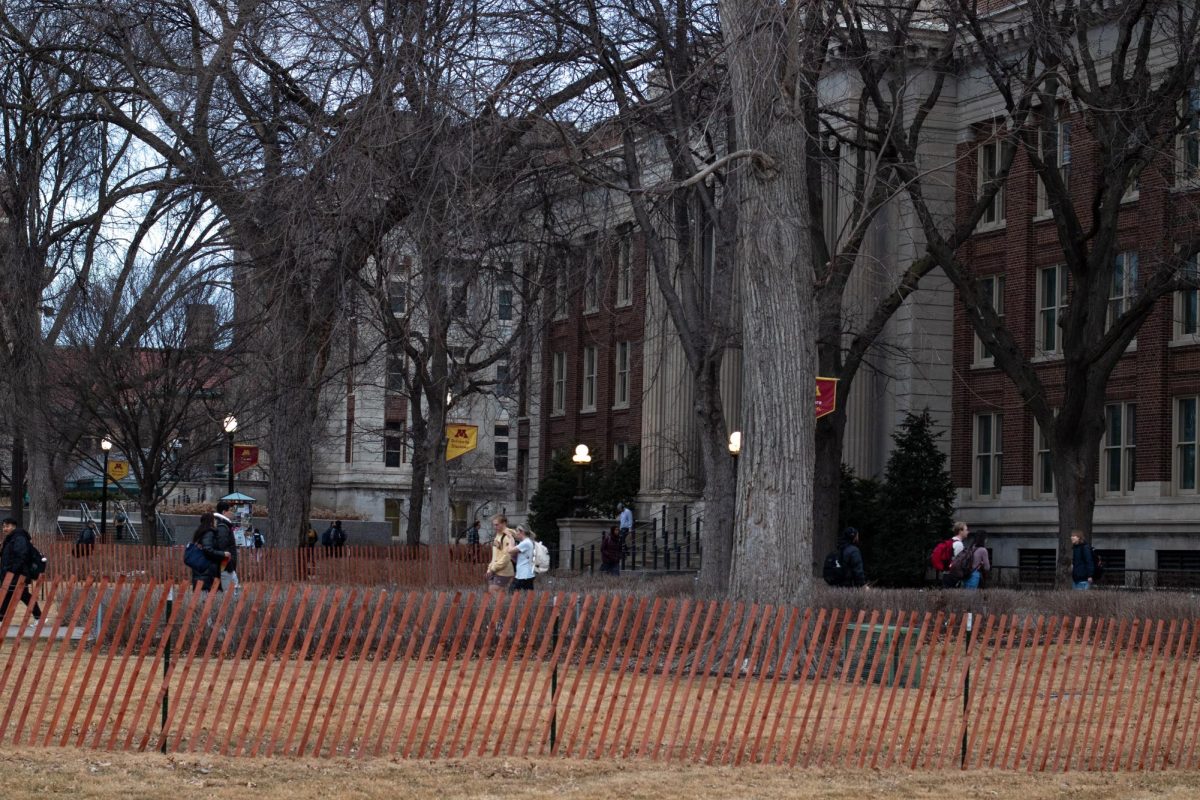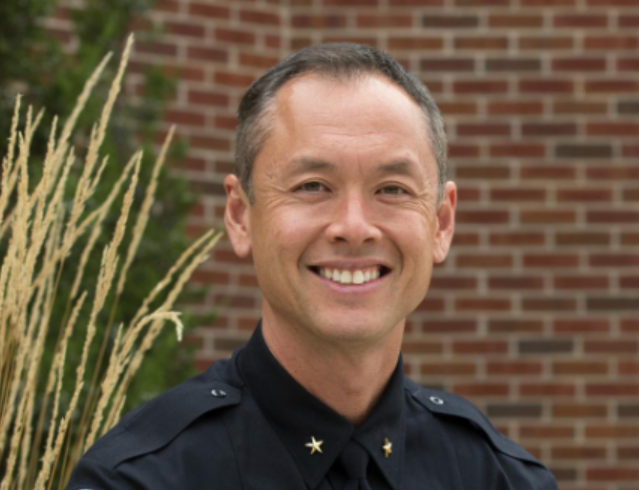The University of Minnesota recently launched a new climate policy initiative aimed at empowering student voices and promoting community discussions around climate change.
The Tom Swain Climate Policy Series, hosted by the Humphrey School of Public Affairs and the Institute on the Environment from Oct. 26-29, featured climate related events with speakers and action discussions. This series comes on the heels of increased student advocacy around climate change and sustainability, and the University’s decision to divest from fossil fuels.
The Tom Swain series offers students a new avenue to become involved in climate discussions with their peers, the University and the broader public.
The series has two goals, said Gabe Chan, associate professor and co-director of the Center for Science, Technology and Environmental Policy. One goal is to empower student voices in climate change discussions and the second is to connect the broader Minnesota community with the climate expertise and opportunities the University can offer.
Students getting involved
Climate change is a global problem that will have impacts on future generations, Chan said. As students will be dictating the future, this series offers a “unique window” to hold discussions and create actions to combat climate change.
“It is important for students to be involved in the [climate change] discussion because we will be leading the world in the next few decades and need to help today’s leaders plan for the future,” said Megan Walkenhorst, co-president of the UMN Energy Club, in an email to the Minnesota Daily.
Walkenhorst said it is nice to see the University promoting sustainability by offering compostable straws and cups on campus, but more could be done to include everyone, not just science majors, in climate change discussions. As an environmental science major, Walkenhorst said she thinks climate change should be incorporated into classes in all majors.
University student Megan Klebs, who is also president of Net Impact, a student group focused on social and environmental justice, said the University is not doing enough to combat climate change, promote sustainability and stimulate climate change discussions.
Klebs said the University should become more involved with students and student groups on climate issues. Students advocated for years for the University to divest from fossil fuels, for example, and the administration just recently agreed to meet their demands, she said.
“Students are the wave of the future,” Klebs said. “I think realizing that they have a voice and it’s important instead of making decisions without including the students [is] something we’ve talked about a lot in Net Impact and I’ve talked to other student group leaders about.”
The Swain series
Tom Swain, an alumnus and member of the Dean’s advisory committee, created the idea for the new climate series over the summer. As part of his 100th birthday celebration, Swain wanted to take action to acknowledge climate change, Chan said.
“He sometimes says, ‘instead of ice cream and cake, I wanted people to become passionate and [active] on climate change,’” Chan said.
The climate series included a speech from former vice president Al Gore, a student and climate action visioning session and a discussion with delegates to this year’s United Nations climate talks in Glasgow.
About 2,000 people from the University and around Minnesota attended events throughout the week, Chan said. After a successful first run, the series’ organizers said they plan to continue hosting more events in future semesters.
“It’s not just the number of people, but we’re really excited we had a lot of members of the public participating from outside the University,” Chan said.
Walkenhorst and Klebs attended some of the series’ sessions and said they were beneficial to them and other students. In the student visioning session, Klebs said she and other students were able to brainstorm different ways the University can become more sustainable.
Klebs is also the founder of Green Week, another event aimed at engaging students in discussions about sustainability and climate change. Green Week events will take place Nov. 14-19 and include panels with sustainable companies, sustainability Olympics for students and a charity gala, Klebs said.
“It’s going to be a really good chance to become more educated about sustainability related issues [and] participate in fun activities,” Klebs said.
Klebs and Walkenhorst said they think it is important for students to become involved in these discussions and advocate for change, because they are the generation that will have to live with the consequences of climate change. Students can become engaged by attending club meetings and rallies and holding officials, leaders and companies accountable for their actions, Klebs and Walkenhorst said.
“Climate change to me is the most important issue of our time,” Walkenhorst said. “It is hard to live with the reality that our planet could look completely different by 2050 if leaders around the world do not make drastic changes.”
Image by Mary Ellen Ritter
New climate series aims to amplify student voices in climate change discussions
The University of Minnesota climate policy series focuses on creating engagement and knowledge among students and the broader Minnesoa community on issues of climate change.
by Maia Irvin
Published November 11, 2021
0
More to Discover














